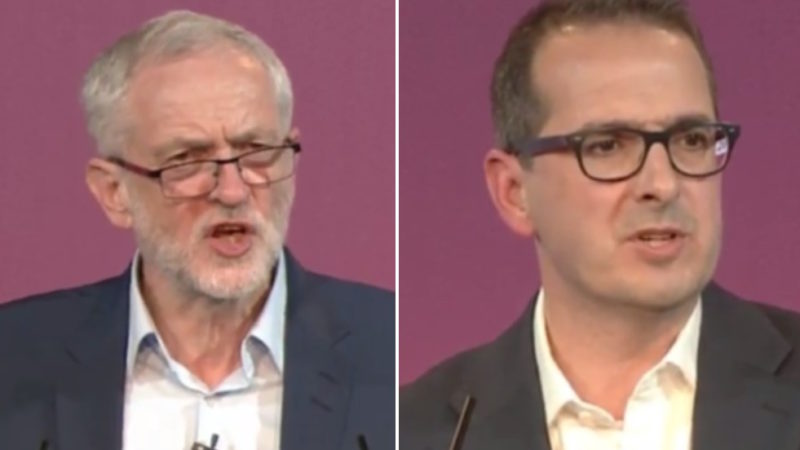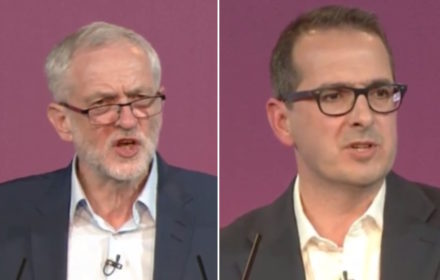

Owen Smith’s performance in tonight’s hustings in Birmingham shows the potential gulf between him and those who can vote in this election. It is not a substantial difference on policy issues, but what leadership style members want which will decide the contest.
Smith has fought this election by spearheading radically left wing policy: a £200bn New Deal of infrastructure investment, raising the top rate of tax, anti-interventionist foreign policy, opposition to right to buy and opposing the charitable status of private schools. This may not be enough. Ultimately, it’s Corbyn’s anti-politics image that is cutting through to Labour members and which Smith is struggling to emulate.
From the get go, Corbyn was able to intertwine policy positions with the values of equality and inclusiveness which delivered him the runaway victory last year. The first question, on Government debt, drew pro-investment, anti-austerity positions from both candidates. However, Corbyn built upon this by saying we should “measure our achievements by social objectives not just financial objectives”. It’s a position which appeals to those on the left who committed to social justice first and foremost rather than rhetoric about fiscal responsibility.
Later on, Smith said his leadership role model was fellow Welshman Nye Bevan because he “sought power wherever he went” and was able to combine Labour thinking with action. Corbyn, by contrast, said his leadership model wasn’t about a person, but was about “empowering those who have been systematically disempowered” – an answer which encapsulated the ideas of liberation and radical democracy.
The flip side was also true. When Smith brought up more traditional political concerns – about winning elections and enacting Labour’s vision was met with cool or openly hostile responses. Smith was booed and heckled when he brought up criticism of Corbyn’s leadership style. Mentioning that 170 socialist Labour MPs did not have confidence in his leadership brought strong opposition from the audience. One of the biggest cheers was when Corbyn said Labour must “work together” to achieve electoral success – a reference to the disunity seen in the party since the EU referendum.
This isn’t to say he two candidates are being judged by the same standards. Closeness to the electorate as a whole was viewed as a positive when it supported Corbyn’s position on rejecting a second EU referendum, but was viewed negatively when Smith commented on the huge electoral task faced by Labour. Obviously, holding the two positions isn’t contradictory, but it is unusual to believe that Labour policy should move to the most popular position in the referendum but not the most popular position in the last general election, or take direction from opinion polls.
Smith did win applause at times, but it was less raucous than that for Corbyn. He was heckled a lot, which prompted an attack on Corbyn for not calling out the bad behaviour of the audience. But this was also met with hostility: when Smith said “we are beginning to treat each other in a deeply uncomradely fashion”, an audience member shouted out “you started it!” – showing just how much some hold Corbynsceptic MPs responsible for the toxic atmosphere in the party.
Those present in the room are not exactly the same as those who can vote in the contest. But there’s reason to believe they are fairly representative of the party as a whole. Corbyn won 85 per cent of CLP nominations; he is still drawing thousands at campaign rallies throughout the country and we’ve seen hundreds of thousands join the party – even before the January 12 cut off – to support his leadership.
This debate showed it’s not policy which will sway this leadership election, but image instead. Corbyn expresses more of the values Labour members want to hear – and does it with nuance and precision. His “brand”, of authentic anti-career politician, puts him way ahead of Smith. Corbyn’s challenger can talk the talk of a left wing Labour Party, but he cannot walk the walk of an anti-politics idol.




More from LabourList
Antonia Romeo appointed to lead civil service as new Cabinet Secretary
‘If Labour is serious about upskilling Britain, it must mobilise local businesses’
Stella Tsantekidou column: ‘What are we to make of the Labour Together scandal?’